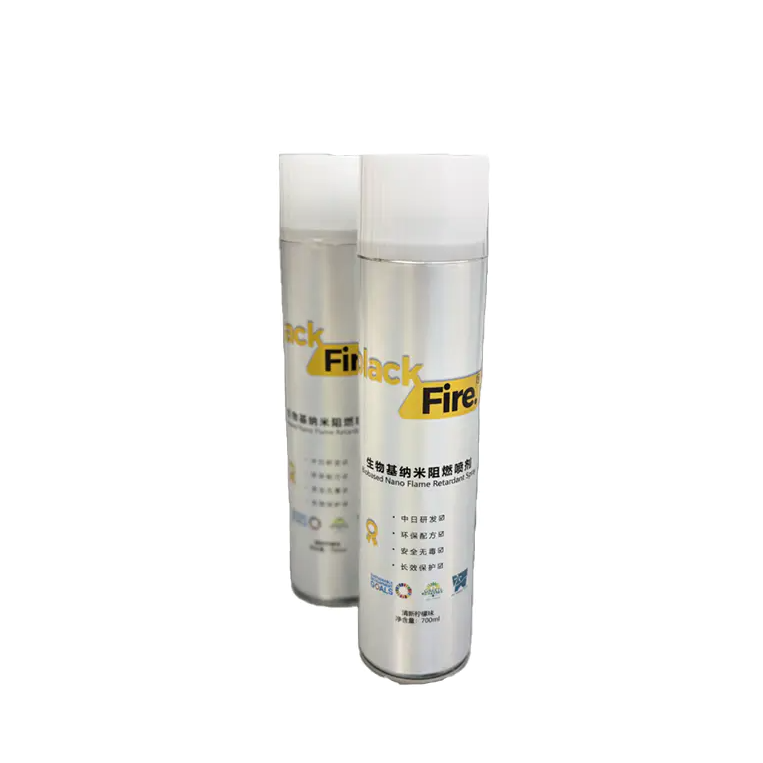How Fire Retardant Liquid Enhances Material Safety and Prevents Flame Propagation

Composition and Function of Fire Retardant Liquid
Fire Retardant Liquid is a specially formulated solution designed to reduce the flammability of materials and inhibit the spread of fire. It typically contains compounds such as phosphorus, nitrogen, boron, or silicon that work together to form a protective barrier when exposed to heat. This barrier acts by reducing oxygen availability and lowering the surface temperature of the treated material. Depending on the formulation, the liquid can be applied through spraying, dipping, or coating to textiles, wood, paper, and plastic. Its effectiveness relies on both the concentration of active ingredients and the material’s ability to absorb or retain the treatment.
Chemical Mechanisms of Flame Retardancy
The fire prevention mechanism of retardant liquids generally operates in either the gas phase or the condensed phase. In the gas phase, active radicals are released that interrupt the combustion chain reaction, preventing flames from sustaining themselves. In the condensed phase, a char layer forms on the surface of the treated substrate, blocking heat transfer and isolating oxygen. Phosphorus-based retardants promote this charring effect, while nitrogen compounds release inert gases that dilute flammable vapors. This dual-action approach significantly slows down burning speed and heat release, giving valuable time for evacuation and firefighting efforts.
Application and Performance Factors
The performance of a fire retardant treatment depends on its compatibility with the substrate, application method, and environmental conditions. For textiles, absorption depth and evenness determine durability and washing resistance. For wood or cellulose-based materials, deeper penetration allows for longer-lasting fire resistance. However, the protective effect can diminish with weathering, moisture exposure, or mechanical abrasion. Therefore, in industries such as construction and transportation, periodic reapplication or surface sealing may be necessary to maintain optimal protection. Advanced formulations now include cross-linking agents that improve bonding and extend the lifespan of treated surfaces.
Environmental and Health Considerations
While traditional flame retardants often contained halogen compounds that posed toxicity risks, modern Fire Retardant Liquid products increasingly adopt eco-friendly alternatives. Phosphorus- and nitrogen-based systems are preferred because they produce less smoke and minimal toxic gas when exposed to fire. Additionally, water-based solutions reduce volatile organic compound (VOC) emissions and improve workplace safety during application. Nonetheless, assessing biodegradability and potential runoff impact remains essential, especially when the liquid is used outdoors or on large-scale structures. Sustainable product development now emphasizes achieving high fire performance with minimal ecological footprint.
Industrial Applications and Future Trends
Fire retardant liquids are widely used in industries where flame resistance is critical—such as construction, textiles, electronics, and forestry. In firefighting, large-scale formulations are deployed to create firebreaks and protect vegetation from wildfires. As technology advances, nanomaterial-based and intumescent coatings are emerging, providing higher efficiency with thinner application layers. Future research focuses on enhancing adhesion, thermal stability, and environmental safety, ensuring that these liquids continue to evolve into safer and more durable protective solutions for modern fire prevention and material safety management.
- Art
- Causes
- Crafts
- Dance
- Drinks
- Film
- Fitness
- Food
- الألعاب
- Gardening
- Health
- الرئيسية
- Literature
- Music
- Networking
- أخرى
- Party
- Religion
- Shopping
- Sports
- Theater
- Wellness


